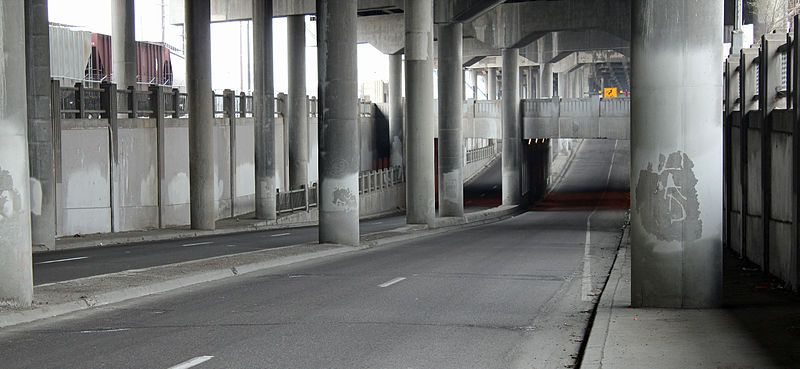Federal Judge Declines to Issue Injunction Against CDOT’s I-70 Widening
Despite evidence that CDOT skirted environmental review laws so it can ram a sunken highway through north Denver neighborhoods, United States District Judge William J. Martinez ruled that the project can proceed -- for now.

A federal judge yesterday ruled against plaintiffs seeking to halt the Colorado Department of Transportation’s project to widen I-70 through mostly low-income, Latino neighborhoods in north Denver.
Opponents of the widening had hoped to stop CDOT from putting shovels in the ground before the court hears arguments later this year challenging the project under the federal Clean Air Act.
Plaintiffs led by Denver developer and Globeville resident Kyle Zeppelin sought an injunction on the grounds that CDOT failed to include a drainage project necessitated by the highway widening — and the toxic soil it will release into the air — in the agency’s environmental analysis. The approval of the project for federal funds, they argued, was based on a faulty premise.
The drainage project will funnel storm water away from the 40-foot ditch CDOT plans to build for the widening. Technically, it’s a project of the City and County of Denver, but CDOT is covering some of the cost. An internal Denver Public Works document from 2014 states that CDOT was “unwilling to jeopardize their progress” on the I-70 expansion by including the flood protection project in its environmental analysis [PDF].
In his decision filed Monday [PDF], United States District Judge William J. Martinez denied the request for an injunction, positing that Denver would have gone forward with the drainage project regardless of CDOT’s I-70 widening and without CDOT funding.
Even if CDOT was compelled to redo its environmental analysis, Martinez wrote, it “would put [CDOT] in the awkward position of evaluating the impacts of and developing alternatives to [an action] that it has no ability to influence or stop.”
The plaintiffs argued that this was intentional. The whole point of the agreement between CDOT and Denver, said plaintiffs attorney Aaron Goldhamer, was to artificially separate the drainage work from the highway expansion. As a city-led project, not a CDOT project, the flood protection component would go without federal funding and circumvent the environmental review process.
“Denver and CDOT conspired to jump start this project with Denver’s drainage improvements for the purposes of avoiding Federal environmental law,” Goldhamer wrote in an email. “Neither Denver, nor CDOT, nor the public should be happy about this undermining of our environmental protections.”
Martinez also dismissed concerns about the contaminated soil CDOT would have to dig up from a Superfund site in order to widen I-70. The plaintiffs didn’t prove that CDOT had “any reason to believe that mitigation measures will fail,” Martinez wrote.
CDOT’s widening still faces legal challenges from the Sierra Club over the widening on environmental grounds.
This article was changed to reflect the pending challenges to CDOT under the National Environmental Policy Act.


